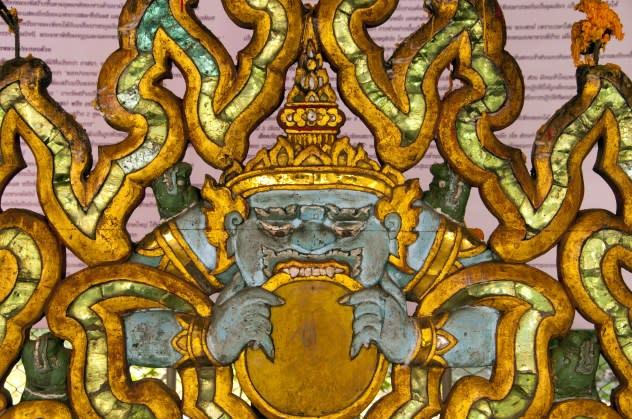Joyous event or dreadful omen? How people interpreted infamous solar eclipses in history
A total solar eclipse wasn't always considered a joyous event. In the past, it was often regarded as a dreadful omen to those who didn't understand the science behind it.
In 585 B.C., a solar eclipse brought peace to the warring Kingdoms of Lydia and Medes. After witnessing the incredible event, the kings of Lydia and Medes agreed to stop fighting and negotiate peace.
In the Christian gospels, it is said the sky darkened hours after the crucifixion of Jesus Christ. Historians speculated a solar eclipse caused the darkening skies and tied two eclipses that could have possibly followed the crucifixion in the common era in the years 29 or 33.
A total solar eclipse coincided with the death of England's King Henry I in the year 1133. Onlookers described the eclipse as a "hideous darkness that agitated the hearts of men." The king's death thrust England into a civil war for the throne.
 |
A view of the solar eclipse with the statue of former Brazilian President Juscelino Kubitschek, is seen outside the JK Memorial, in Brasilia, Brazil, Saturday, Oct. 14, 2023. (AP Photo/Eraldo Peres) |
Eclipse records in ancient China date back to more than 4,000 years. Residents believed the sun "was being eaten" by a dragon. Banging drums and making loud noises were said to be the recipe for the cure, and after a few moments of cacophony, the sun reappeared.
In the year 1302 B.C., the sun was considered a symbol of the emperor of China. When the skies darkened, the emperor considered it a warning. In an effort to save the sun, the emperor would perform rituals and eat vegetarian meals.
In more recent times, a solar eclipse over South America and Africa on May 29, 1919, helped prove Albert Einstein's theory of general relativity, which states that light is bent by the forces of gravity. By observing the Hyades star cluster, astronomers from the Greenwich and Cambridge observatories tested this theory during the eclipse. When the cluster approached the sun, the light bent as Einstein predicted, cementing the physicist as an internationally renowned celebrity.
Egyptian lore of eclipses is suspiciously absent from history, though the astronomy-loving sun worshippers must have known about them. Scholars have said that eclipses may have been so distressing to Egyptians that they were purposely left out of lore, though papyrus records containing them may not have survived the passage of time.
 |
A representation of Rahu, Snake Demon and causer of solar and lunar eclipses, In Hindu mythology, Rahu is a snake that swallows the sun or the moon causing eclipses. (Pictures From History/Universal Images Group via Getty Images) |
AccuWeather's Erik Austin contributed to this report.
Want next-level safety, ad-free? Unlock advanced, hyperlocal severe weather alerts when you subscribe to Premium+ on the AccuWeather app. AccuWeather Alerts™ are prompted by our expert meteorologists who monitor and analyze dangerous weather risks 24/7 to keep you and your family safer.




